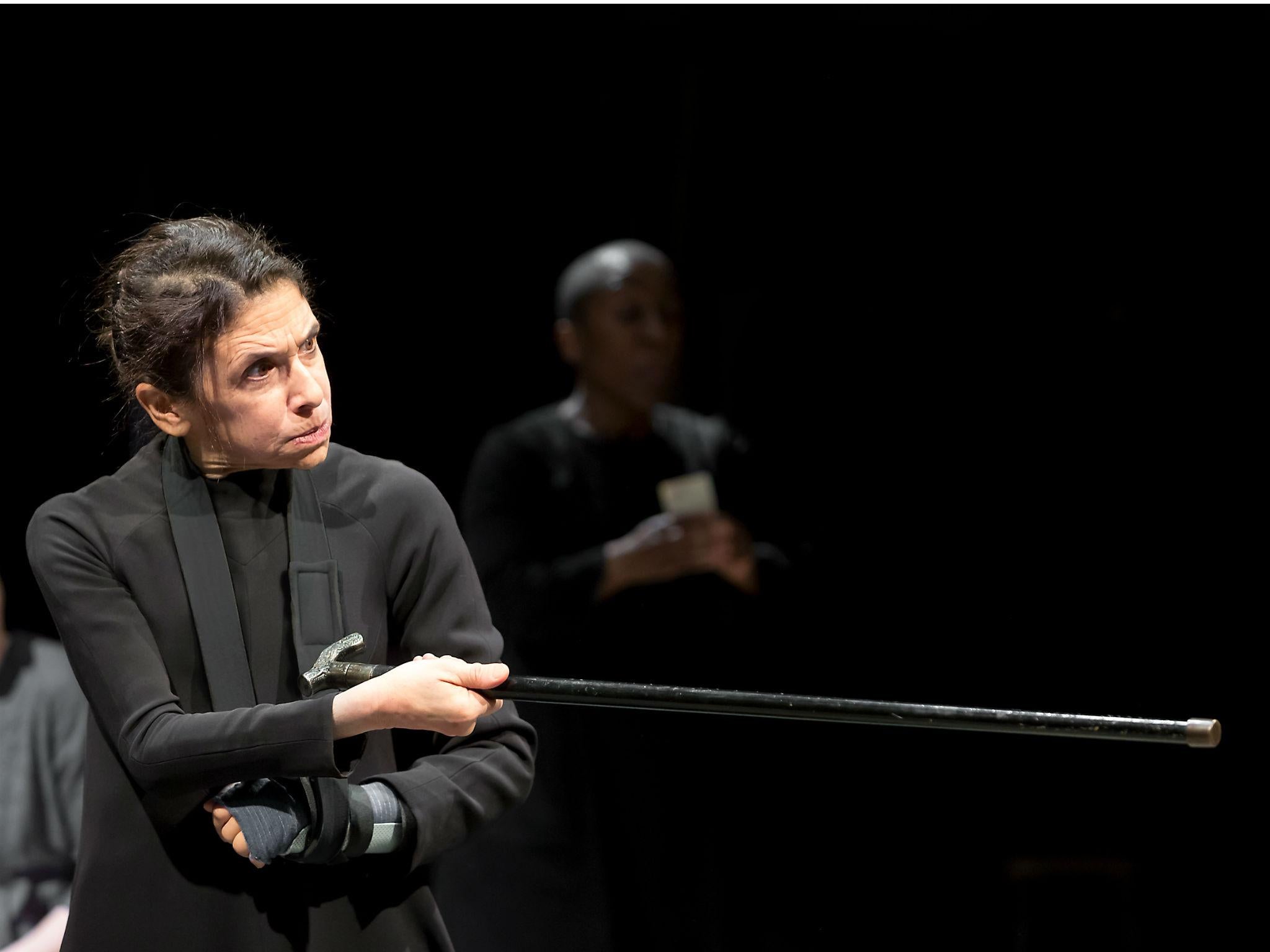The House of Bernarda Alba, Royal Exchange, Manchester,review: A real mix of a production
Kathryn Hunter plays the matriarch who is grieving her husband's death and bans her five daughters from leaving the house, but a performance by the disabled acting company Graeae doesn't capture the simmering violence of the play

The pieces were all in place for something rather special. That electrifying actor Kathryn Hunter had joined a disabled-led theatre company, Graeae, to perform the final play by Federico García Lorca which he had finished only a few weeks before being executed by a fascist firing squad in Franco’s Spain. This allegorical study of manipulation, fear, discrimination, patriarchy and repressed violence seemed timely at the start of the Trump era.
Certainly Hunter delivers a magnetic and mesmerising performance as the matriarch who tells her five unmarried adult daughters that they will not be allowed to leave the house during eight years of mourning for her recently deceased husband. She presents a woman whose physical ageing – in her sixties, she has a bird-like frailty – has not diminishes the iron demeanour with which she rules her browbeaten household.
But though she still controls the dress and behaviour of her daughters, she can no longer subject their thoughts and feelings to her domestic tyranny. Her tightly regimented enforcement of a traditional oppression of women by women is beginning to fall apart.
I had high hopes that abilities and disabilities of the Graeae actors would enhance the play’s themes of isolation and disconnection, power and powerlessness. Last year, on Broadway, Deaf West Theatre presented a musical based on Wedekind’s 19th century shocker Spring Awakening using an imaginative combination of able-bodied and disabled actors to add extra dimensions to this tumultuous tale of adolescent sexuality, and Graeae was offering a mix of speech, sign language, captioning and audio-description that promised to be similarly enriching.
Sadly, this Bernarda Alba was less than the sum of its parts. The various components seemed fragmented and desultory. For all the talk about heat and sexuality, Jenny Sealey’s production conveys no feel of either. There was no build of narrative tension and incidents which should build seething resentments between the sisters seemed merely a succession of sibling squabbles. For all Lorca’s vivid imagery – “I’d like to pluck out her eyes and nail them to the doorpost” – there was no sense of simmering violence.
This was a shame for there were some fine moments and strong individual performances. Hermon Berhane mutely conveyed the sensuality, sexual longing and frustration of the youngest daughter who loves, and is loved by, the only eligible man in the village. Nadia Nadarajah was silently eloquent as the eldest sibling whom he promises to marry but for her inheritance rather than her looks. And Hunter deftly allows occasional gestures of love to surface from beneath her maternal cruelty.
The set, by Liz Ashcroft, is clever and offers a terrific dramatic climax to the evening which it would be unfair to spoil by saying more. A real mix of a production.
Subscribe to Independent Premium to bookmark this article
Want to bookmark your favourite articles and stories to read or reference later? Start your Independent Premium subscription today.

Join our commenting forum
Join thought-provoking conversations, follow other Independent readers and see their replies